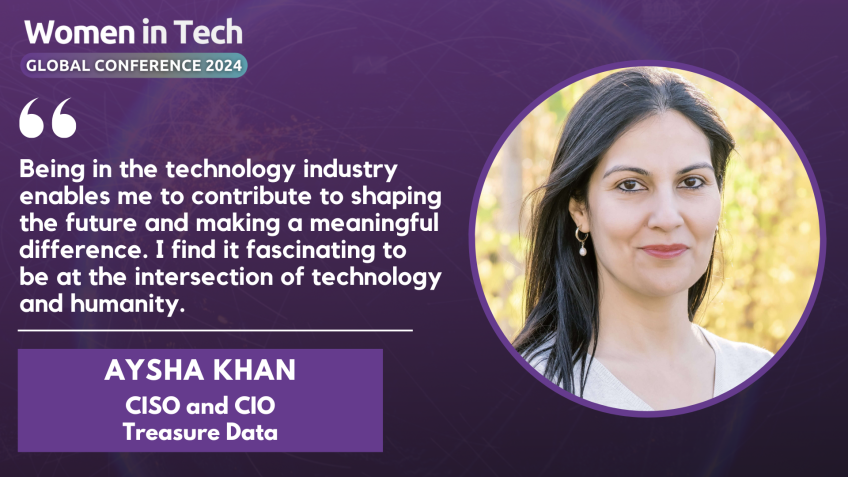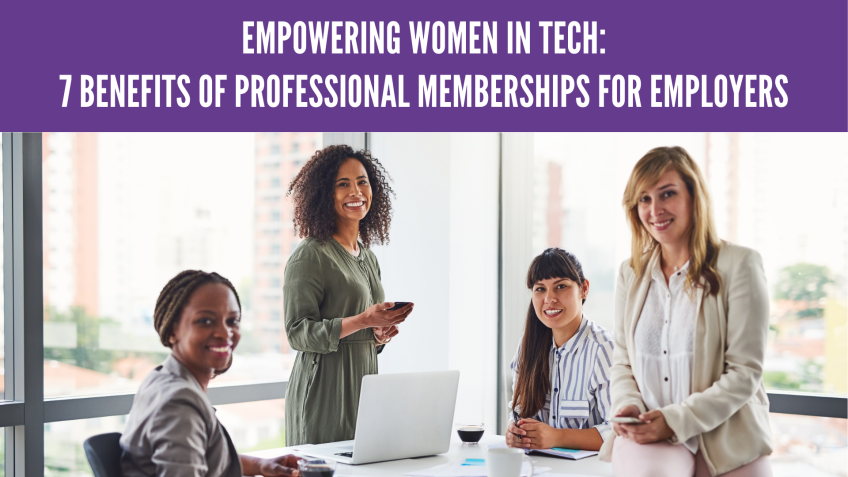Building Your Own Board of Directors – The Importance of Networking
Building Your Personal Board of Directors: A Career Guide
Today, we are going to discuss a critical yet often overlooked aspect of career development: building your personal board of directors. It's an exciting journey that can greatly impact your professional growth, especially if you're a woman in tech. From showing up to work and doing your best to deliberately nurturing your network, we'll go through each step in detail.
Understanding your Role and Leadership
"Leadership is not defined by the exercise of power but the capacity to empower others." This is a belief I have developed throughout my career journey. Don't be fooled into thinking that leadership is all about titles, size of your team, or your revenue accountability.
But, what truly defines leadership is your ability to empower others, to lead with empathy, and to create more leaders. It's also about having the integrity to stand up for what is right and the willingness to 'pay it forward'. This understanding also extends to building your personal board of directors.
Developing Your Network Strategically and Thoughtfully
Did you know that having a thriving network is as important as the work you deliver? It's crucial to surround yourself with a group of friends, mentors, sponsors, and influencers that will help propel you in your career.
Consider your network as a lattice, not a ladder. Over time, it naturally grows all around you, and it's up to you to tap into it, nurture it and expand on it strategically. The key point here is to start doing this as early as possible in your career.
The Composition of Your Personal Board
Your personal board of directors will include:
- Connectors: These are people who thrive on introducing you to others
- Insiders: These are your go-to people for intel about your industry or job
- Influencers: They have earned credibility and respect in their industries and can bolster your credibility
- Mentors: These are the ones that support your growth and provide valuable advice
- Sponsors: They advocate for you professionally and are vested in your long-term career success
Importantly, each one of these board members play a specific role in guiding your strategic direction and core focus throughout your career.
Selecting the Right People for Your Board
Being intentional and selective is key when it comes to forming your personal board of directors. Always remember to choose the right people who align with your career goals and missions. One of the most essential aspects here is diversity. Seek people who have different backgrounds, experiences, perspectives, and skill sets.
Bear in mind that building a diverse board doesn't mean ticking a box. It means forming a well-rounded group of individuals who can provide you with varying perspectives for your professional growth.
The Power of Paying It Forward
The greatest leaders understand the innate value of paying it forward. As you build your career and personal board of directors, remember the importance of supporting other women in tech. Don't hesitate to ask for help, but equally, don't hesitate to offer a helping hand to others when you are in a position to do so.
Finally, never underestimate the power of intersecting networks. As you grow your career, ensure to use your influence to help others grow theirs. Good luck with building your own board, and remember to remain open-minded, embrace diversity, and always aim to pay it forward.
Video Transcription
First, I just wanna, you know, share with the audience.I'm so excited to be here and, and most importantly, I, you know, I get to get up every morning and do what I love most, which is creating success for students and the next generation of leaders at a company that is powering higher ed through its technology worldwide. So I, I just feel privileged to be here with you, share my career journey and the critical role that my personal board of directors has played in it. So let's get started. So we're gonna look at building your board of directors through a couple of different lenses. First is really showing up to work and doing your best enough, what leadership is and isn't and how that is relevant to your board of directors. How do you source your network throughout your career journey? And what does the makeup of your board exactly look like? And lastly the importance of paying it forward as a board member yourself. Now, I grew up on a farm in Southwester Pennsylvania and I worked in the fields, picking vegetables, we raised hogs and I would go to farmers market, selling produce five days a week after school. In fact, I would do my homework on a concrete curb under a street light. And I did this from the time I was 8 to 18 and I didn't have an easy upbringing.
But when it was tough, my father would always remind me and my two younger sisters, the harder you work the luckier you get. Now, while my father was right, to a certain extent, I've also learned that you need a little more than hard work to have a successful fulfilling career, particularly as a woman in tech. You need a group of friends, mentors, sponsors influencers that will help to propel you forward in your career. This is the missing ingredient for so many women that I meet and have personally sponsored the reality. Is that excellent work? It's just tablets early in my career.
I thought that if I put my head down and worked hard, I'd be noticed. But guess what organizations are not meritocracies, the people in your network are as important as the work you deliver. And I wish I started earlier to develop mine. So we'll talk about how to develop yours strategically and thoughtfully and continue to refine it throughout your career. Now, before we get into building your personal board of directors, I wanna have a quick discussion with all of you on what exactly leadership is and is not and why understanding it is relevant to network, building leadership is not defined by your title, the size of your team, your revenue, accountability or your reporting relationship.
Too many individuals make this mistake in thinking in this context. Leadership is not defined by the exercise of power, but the capacity to empower others to lead the most essential work of a leader is to create more leaders. For me, leadership is extremely, extremely personal freeing people to be their best drives results in organizations. It can be challenging for analytical thinkers like myself and it has been throughout my career and probably for many of you in the tech field. But learning how to lead with empathy is so critical and important to start off that way. A common misstep for managers in new roles is to assume that what made them a superstar in one role will translate to another. Take the time to listen, observe, understand your organization's culture, your team and your partners have the courage to ask tough questions that will ultimately set you and your team up for success. Also the desire to pay it forward, not just paying it forward, the desire to do so being intentional and bringing other women up with you, you have to pull them up. And lastly, for me, what I found is integrity, integrity is a perishable asset. And at the end of the day, that's all you have is your integrity and nothing is worth giving that up.
So how will you learn all of this the same way I did through your network, your network is key to your development as a leader and overall success, you'll have many different leaders and mentors as you develop these skills. And in fact, you started an informal network many years before this conference. Now, I would describe my career journey as one of the lattice, not a ladder. And like me, you will naturally have a network growing all around you. You just have to tap it and nurture it and expand it up and out. The one thing that I would have done differently is to start earlier in my career, to strategically and intentionally build a network. When I think about my childhood, the informal process started there. I use this as a base to expand in all directions. Little did I know at the time that the farm and greenhouse business that I grew up in would serve as a foundation for my network. So think about what your network was growing up and that foundation that you had around you in college. I built my academic network including professors, career advisors and those real connectors. Several that I'm still in touch with today. And by the way, if you happen to notice the picture, that's me in the middle. It was the eighties and big hair was in. So I'm sure some of you remember that.
Now, during my early years in my career, when I was at Price Waterhouse, I began to grow my professional network. You'll see. I've highlighted mentors and insiders for those information powerhouses that are so important as you're getting started. As I advanced my career at Oracle, my network grew to incorporate influencers and sponsors as well. These are key and were key in my advancement to director and vice president levels. Now we're gonna dive in and we're gonna talk more about each in just a moment. Then when I came to the point in my career where I was at senior levels, I became the influencer sponsor and mentor and someone that was connecting others and paying it forward. Now, a board of directors for an organization guides its strategic direction and its core focus. So the same holds here for your board. Now, why do you need one? You just saw my network and how I built it on the journey. It was vast, it was vast, but the board has to be focused. You need a core team of counselors to be tapped for specific purposes along your journey and it's gonna evolve and change throughout your career journey. So let's take a look at who's on your personal board of directors and where in your network you are pulling them from each of these board members connectors, insiders, influencers, mentors sponsors, each will play a specific role very similar to a corporate board.
So let's start with the connectors. My father, he had a nickname Mr Friendly. He was a people person and had great relationships with just about everybody. And that's what connectors are. They know lots of people and thrive on introducing each other. If you have a question, connectors can introduce you to multiple people who will have the answer. These individuals have large networks online and offline. Now, where do you find them? So watch who's organizing social events at work during COVID zoom. Happy hours became really popular in our workplace.
These were led by connectors, employee resource groups. These are typically led by connectors and people who lead cross functional initiatives in your organization. Watch for them. You'll typically find connectors here as well. Reach out to them, introduce yourself network with them, ask them to help make introductions for you and they will most likely be happy to do so. Why? Because remember they're people, people insiders, these are the people in the know on what's going on in the company or in your industry and they're not necessarily senior individuals, but they have their finger on the pulse of what's happening at any given time. You wanna seek out these individuals when you need intel about new projects, job openings, funding trends, organizational change and so on. They have become go to for a range of reasons. They might work on cross functional teams. They might be closest to the customer experience.
They usually have served in several capacities in industry positions and they've been a bridge across different departments with an insider. You wanna check in frequently and casually to share interests, learn what's going on in your organization and you might even follow this person on linkedin, their blog or Twitter. Next, the influencers, they make things happen and they've really earned credibility and respect of others.
And I have quite a few of these in my board. If you need to get others on board for you with a new idea, or if you're seeking approval for a new initiative, you need to tap an influencer. Whenever I'm going into an important meeting to position something new, a proposal, a strategy and investment, I'm trying to put forward, I make the habit of pres socializing what I'm trying to do with an influencer and influencers support can bolster your credibility and there are good guides to navigating your organization and other influencers as well.
So how do you find these influencers well, pay attention to who has respect because of their track record in your organization, industry knowledge or just the ability to cut through red tape, internal roadblocks and move projects and people forward, think about who you want to have your back to show support.
The next time you're presenting something important. Once you've figured out who these individuals are volunteer for stretch assignments, rotational opportunities, pilot projects under their leadership. This provides you access to them and visibility. Once they're familiar with your work, this will create opportunities for them to recommend you for future work as well as connections to other influencers. Next, the mentors. Now, I have several of these and these have been so pivotal for me in nurturing, giving me advice throughout my career.
They're the ones that are going to support your growth, give you that advice, feedback and guidance. They will act as a sounding board for career related decisions and can help you to navigate challenging situations at work. Now, here's some tips on finding a manor start by identifying a role model. Someone who inspires you, let them know something you admire about them or something you'd like to learn from them. Start small request. Just 10 minutes of time. Now, why do I say 10 minutes? Because it's hard for somebody to say no to 10 minutes. Set up a meeting, be prepared with specific questions and really respect the 10 minutes. In some cases, they will offer you 30 minutes and most of the time they will, if the conversation goes well, ask to schedule a follow up conversation to learn more. And if that conversation goes well, ask to schedule a regular check in perhaps quarterly and congratulations you have now just found yourself a mentor. So notice the key here. I've never really asked someone to formally be my mentor. Now, lastly, the sponsors, these are so critical to propelling you forward. These are individuals who have influence and can accelerate your career. They will advocate for you in your company, your industry and their networks.
They will put you forward for highly visible assignments and they are vested in your long term success and they're willing to put their reputation on the line and go to bat for you. Now, here's the challenge you don't choose a sponsor, they choose you. So now you're wondering how does someone find you? Well, there's some things you can do to get a head start, demonstrate outstanding job performance. Remember the conversation we just had on leadership. Well, you need to have a track record of developing other talent and you need to make your achievements known. I have benefited from sponsors throughout my career. I've set their career goals and I've made my intentions known to my sponsors. These sponsors have opened doors to new opportunities.
Wow, my mentors have coached and helped to prepare me for those opportunities. That's the key difference. So whether you're focused on advanced in your career, making a course correction in your leadership style, leading a major project or taking a big bold risk. Having a personal board of directors can just make that journey easier. It will propel you in your career in a way that hard work alone just can't. Now, let's do a quick recap. We've talked about who's on your board, how to identify the board members and where to source them from in your network. The last step in select and building the board is to select the right people and to do this, we need to be super intentional. Now, there's no need to hold a meeting or even inform each person of his or her status as a board member. But you need to select the right people and stay in touch with them to select the right people. You need to ask yourself first, some really important questions and the answer to the questions is going to change time over your career. I personally have thought of my career in five year blocks and have been intentional about revisiting each of these questions you see here every five years. This has also shifted the makeup of my board over time.
Now, if you don't know your goals or mission statement, how can you pick the right people just similarly to a corporate board? And among all diversity is key in all its elements. It's key to you and your company's success. It isn't about just checking a box so seek people for your board who look different from you who have other backgrounds, experiences, perspectives and skill sets. One of my most influential mentors in my mid career helped me to make a very important course correction which was critical to my growth and accelerated my career. He actually practiced Buddhism and meditation and could have not been more different than me. But here's what he taught me.
He taught me to truly lead. He taught me not just to lead with my head, which is my inclination as a technical leader, but he taught me to lead with my heart. And he taught me that balance between head and heart that has made such an incredible difference in my career trajectory. Now, I started this conversation with leadership and that's where I'd like to end it. Why? Because great leaders attract great sponsors, mentors, influencers.
They are just truly magnetic and others want to be around them. Great leaders give more than they take and in doing so building their networks and personal boards of directors just happen naturally. True leaders know the difference between having long term success or not is knowing that you didn't do it alone. They take the initiative to create opportunities for other women, young and established. We all need a little help. And if there's one thing you take away from this is that we have an obligation to all help other women and pull them up with us. When building your board, never be afraid to ask. The only way to be certain that the answer will be no is to not ask at all. And lastly, networks become so powerful when they intersect. So pay it forward and be on someone else's board. So good luck. Good luck. And thank you. Thank you for having me today.





